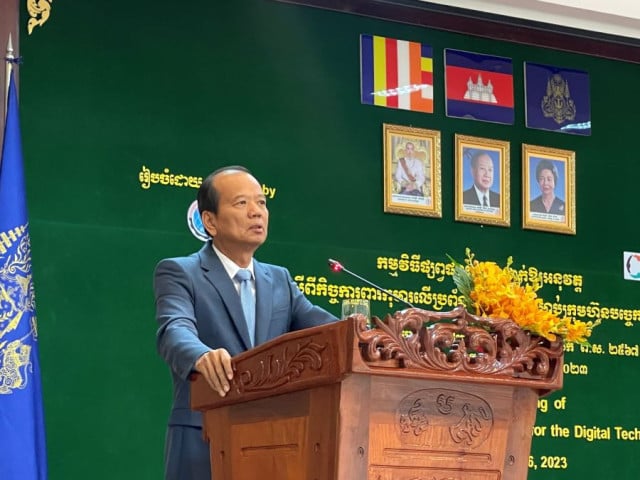Tech Companies Get Child Online Protection Guidelines

- By Meng Seavmey
- July 7, 2023 6:18 PM
PHNOM PENH – Guidelines for digital technology companies to provide online protection for children were launched on July 6.
Figures show that 220,000 cases of child sexual abuse material (CSAM) were posted on the internet from Cambodia in 2022.
Neang Mao, Director-General of Information and Communications Technology at the Ministry of Post and Telecommunications, said the number had fallen from nearly 400,000 cases in 2021 but was still higher than in 2020 when there were about 100,000 cases.
There were still many cases of fake identities, money laundering and fraud online.
“According to a recent study, at least one child out of 10 has been contacted anonymously to harass or take advantage in various forms,” he said.
The guidelines aim to create a common standard for digital technology companies and ensure common methodology and consistency in considering and reducing risks online by respecting children's rights in the digital environment.
They aim also to help parties whose duties are to prevent and respond to all forms of violence on online platforms, including fraud and harassment.
Another goal is to promote excellence in the implementation of digital technology in Cambodian companies.
Chea Vandeth, the Minister of Post and Telecommunications, said at the launch that stakeholders would join forces to protect children on online platforms.
These included the Ministry of Women's Affairs, Ministry of Culture, Ministry of Justice, and Ministry of Interior, technology and internet services providers, school management committees and teachers, parents and children, and social media.
“We now have the guidelines, and what’s left to do is action from all relevant parties to evaluate and ensure the plan will work,” the minister said.
He urged ministries and stakeholders to conduct an educational program in which experts discuss with teachers in person at schools about their important roles in helping to protect students online.
He also called on UNICEF to produce short educational videos on the related topics which would be submitted to all schools, reaching out to students and parents.
The minister said about 40 digital companies and another 50 digital organizations attended the conference.
He had asked Neang Mao to organize a conference with technology companies to discuss training.
To prevent and respond to child sexual abuse material, digital technology companies should define it clearly for use in their own companies, as well as create and promote the conditions of use which prohibit creating, posting, storing or sharing the material on their system or service.
Companies are advised to restrict URLs said to be illegal by the authorities, the Internet Watch Foundation or the National Center for Missing & Exploited Children.
They should also use an abuse material scanning system, create a notifying mechanism and remove the material from their systems.
“Report any contents, pages, software programs or digital nurseries that are suspected of having the CSAM, as well as spread the hotline for immediate report such as 1288,” the guidelines say.
“Keep any evidence safely for the set period of time to help with investigation.”















